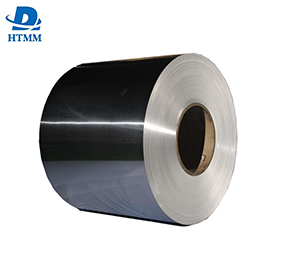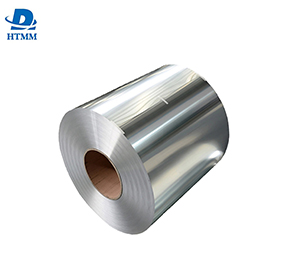Aluminum foil for food containers is a thin aluminum foil with a thickness of 0.03mm-0.2mm processed from metal aluminum. As a food-grade material, its outstanding flexibility and plasticity enable aluminum foil to be processed into various food containers. Aluminum foil itself has excellent barrier properties and can block the entry of external moisture or air and other pollutants. At the same time, it also has very high thermal conductivity, which can not only promote the heating of food, but also realize the heat preservation and freshness of food.

When making food container aluminum foil, the commonly used alloy is 3003. The 3003 alloy has high ductility, because a small amount of manganese is added to it, which makes the aluminum foil more formable and corrosion resistant. Aluminum foil containers have high requirements for formability and hardness when making aluminum foil containers, so there are certain requirements for state and tempering in the process of making aluminum foil. The state of aluminum foil for food containers is mainly H state, including H18/H22/H24. The number after H is the indication of hardness, H22: 1/4 means tempering partial hardening, H24: 1/2 means tempering semi-hardening, H18 means tempering full hardening, different hardness, the ductility and stability of aluminum foil And the tensile strength will also vary.
The production of food container aluminum foil has strict production steps and requires repeated quality inspections to precisely control the details of the production process. Each production process will have an impact on the quality and performance of aluminum foil. At the same time, strict quality control is required for the auxiliary materials required for production, so that the quality of aluminum foil can be optimized.
(1) Casting and rolling: Casting and rolling is the first step based on raw materials. The smelted aluminum ingots are put into a hot rolling mill for repeated rolling and rolling to make them change from aluminum ingots to aluminum coils to form initial thickness.
(2) Cold rolling: put the cast-rolled aluminum coil into a cold rolling mill for processing. Affected by temperature and pressure, the aluminum coil can change through the rollers, gradually reducing the thickness, making the surface more uniform, more physical properties, and improving flexibility and strength.
(3) Annealing treatment: After the aluminum coil is cold-rolled, the aluminum foil needs to be annealed. Annealing is to heat the aluminum foil to a specific temperature. The inherent mechanical properties of aluminum foil enhance the tensile strength and formability. Depending on the requirements, repeated annealing treatments may occur.
(4) Finishing of finished products: After repeated rolling and annealing processes, the initial parent coil has been formed. On the basis of the parent coil, the width can be cut or oiled according to customer needs. wait.
(5) Packaging: After the custom-made aluminum foil is completed, it will be carefully packaged in a special fumigation-free wooden box for export, which can not only avoid product damage during transportation, but also store it safely.
During the production of food container aluminum foil, the control of thickness and width is extremely demanding, and the thickness of food container aluminum foil is the most important factor in the production of aluminum foil containers. In this detail, aluminum foil manufacturers need to consider the following factor:
(1) Barrier performance of aluminum foil: Food containers generally choose a thickness between 30mic-200mic. Aluminum foil of different thickness will affect its own barrier performance. It often has better waterproof, lightproof and pollutant-proof functions. Generally, the thicker the aluminum foil, the higher the barrier property; on the other hand, the thinner the aluminum foil, the lighter the flexibility and weight, which is convenient for the production of some small food containers. While considering barrier properties and convenience, the specific use is an important factor, and the thickness and width of aluminum foil for each use will also be different.
(2) Strength and hardness of aluminum foil: The thickness of aluminum foil will affect its strength and hardness. Thicker aluminum foil has higher tensile strength and puncture resistance, and stronger plasticity. It is usually suitable for food containers that require high hardness. . The thinner aluminum foil has higher flexibility and is usually suitable for smaller and lighter food containers.
(3) Thermal conductivity: The thickness of the aluminum foil will affect the thermal conductivity of the container itself to the food. The thinner the aluminum foil, the closer the distance between the food and the heat, and the faster the heat will be contacted, which can achieve faster heat conduction .
(4) Industry standards and types: The food industry has a standard for the thickness of aluminum foil containers, which is more convenient for the reference of aluminum foil container manufacturers.
Aluminum foil for food containers is a multifunctional and healthy and environmentally friendly food packaging material. It uses specific alloys and states for strict and complex production and processing. The addition of alloys makes aluminum foil have obvious advantages in mechanical and physical properties. Through advanced Production equipment and auxiliary materials to make the production of aluminum foil more professional to ensure quality and safety. Aluminum foil for food containers can be adapted to various types of products, both in direct contact with food and keeping food fresh and delicious. It is widely used in the food industry and has become the most ideal choice for food packaging.
In short, aluminum foil for food containers is very cost-effective and environmentally friendly. With the increase of people's concept of environmental protection and sustainability, the pursuit of high quality of life is gradually increasing, making aluminum foil still occupy an important position in the future food industry.






